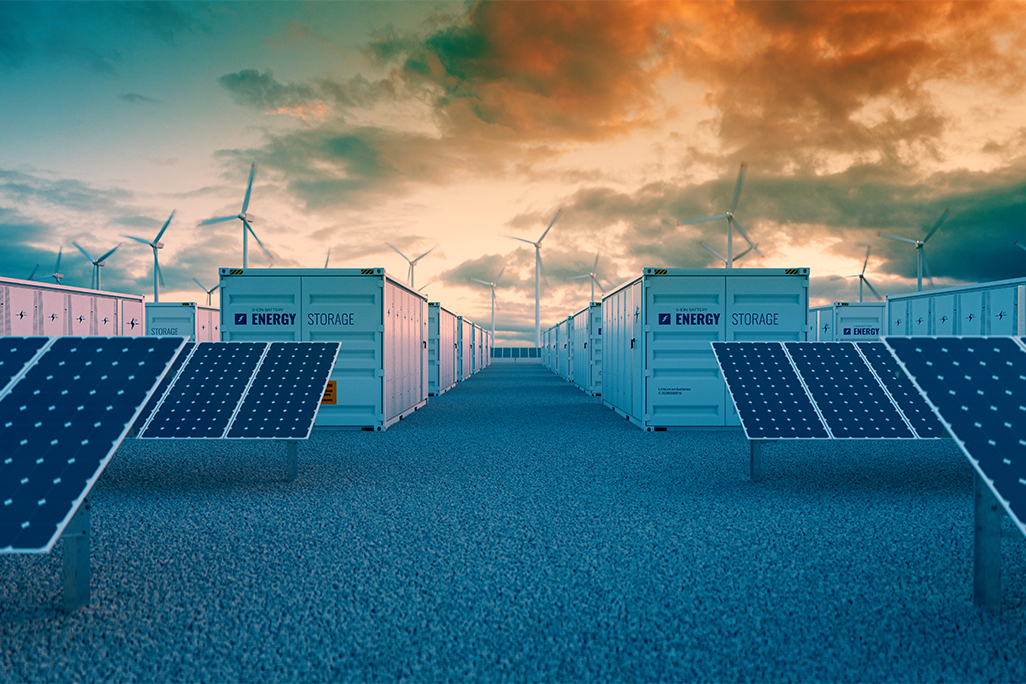The Energy Transition | UK achieves record-low fossil fuel generation
Published on 9th December 2024
Welcome to our top picks of the latest energy regulatory and market developments in the UK's transition to net zero

This week we look at the UK's record low fossil-fuel reliance, Ofgem's consultation on "target model options", the government’s response to land rights consultation and more.
UK achieves record-low fossil fuel generation
The latest quarterly Drax Electric Insights report has highlighted the significant progress that the UK has made in its transition to renewable energy. Fossil fuel generation has hit a record low. The report analyses electricity generation trends from the third quarter of 2024. The analysis, commissioned by Drax, was provided by academics from Imperial College London.
The reports show that UK electricity generation from fossil fuels fell below 5GW for the first time in August and the carbon intensity of the UK’s electricity network has reached a new low of 78g/kWh. The record lows coincide with the closure of the UK’s last coal-fired power station on 30 September. This was an internationally significant milestone for the UK, which has become the first country in the G7 to phase out completely coal generation.
Another highlight is the near complete reliance on wind power achieved on 22 August. On that morning, wind generation produced 18.5GW, which almost met the grid demand of just under 20GW. This generation led to interconnectors exporting electricity and pumped storage charging at near full capacity.
The report also identifies challenges in the transition from gas. Despite a 12% reduction in overall gas demand in the second quarter of 2024 compared to the same period in 2023, domestic consumption of natural gas rose by 2.1% over that period. As of October this year, gas still made up 29.5% of British electricity generation, according to the National Energy System Operator (NESO). The report also notes that coal remains prominent in industrial use and the importance of the UK's industrial decarbonisation strategy.
There are ongoing concerns with the UK’s transmission system, however. Significant grid bottlenecks continue to force the curtailment of wind farms on their most productive days, the report notes. Industry bodies estimate that wasted wind energy due to curtailment could reach 5TWh by the end of 2024, potentially costing UK consumers up to £1 billion as power producers pay to have gas generators turned on to meet demand.
The report recommends significantly increased investment in energy storage projects and transmission infrastructure to counter these problems. National Grid Energy Transmission has already committed £30 billion to transmission infrastructure by 2030.
Dr Iain Staffell of Imperial College London, coauthor of the report, emphasised the need for support from technologies to reduce dependence on gas. He commented: "If we continue to reduce our dependence on gas by prioritising wind and solar, they will need support from other technologies like long-duration energy storage…and dispatchable thermal power, and the government will need a bold approach to rapidly upgrade our transmission grid.”
Ofgem opens consultation on TMO4+
Ofgem has opened a consultation calling for companies to give their views on proposed amendments to licence conditions. This is in support of the implementation by the National Energy System Operator (NESO) of its target model options for connection reforms (TMO4+).
The Electricity System Operator proposed TMO4+ in April – prior to its becoming the NESO in October – to streamline the connection process by replacing the "first to contract, first to connect" method of connecting new projects with a "first ready, first connected" approach. The former method has been described as outdated and not fit for purpose. With this new approach, the NESO hopes new projects will connect to the electricity network faster and that the overall system will operate more efficiently by allowing projects to connect as soon as they satisfy the connection ("Gate 1" and "Gate 2") criteria.
Alongside the overhaul of the connection methodology, the NESO has also progressed with code modifications as part of the implementation of TMO4+. With this consultation, Ofgem is calling on project companies and customers within the transmission and distribution network industry that are already connected or intend to connect in the future to give their view on the proposals.
Ofgem's consultation will be open until January 2025 and they are looking for feedback on the proposed amendments to the electricity system operator licence, the transmission licence; and the distribution licence.
The proposed changes would make the NESO responsible for the development and maintenance of the connection methodologies. The updates also relate to the obligation to offer terms to all projects applying to make a connection and will permit the NESO to restrict applications. The intention is to update the existing conditions in line with the TMO4+ reforms and in preparation for the statutory consultation due in early 2025 on the licencing conditions, methodologies and code modifications.
UK government’s response on land rights and consents for renewable energy projects
The UK government has published its response to a consultation on land rights and consents for electricity network infrastructure. This is seen as a vital step in supporting the country’s transition to renewable energy generation. The consultation, conducted by the Department for Energy Security and Net Zero (DESNZ), sets out the challenges developers face when accessing land for green energy projects, which are key to meeting the UK’s 2050 net-zero target.
The response identifies that current land access and consent processes are often too slow and complex, which causes significant delays for renewable projects including wind farms, solar, and energy storage. Issues around accessing land and obtaining the necessary consents to develop projects risks are holding back the country's transition to renewable energy and meeting net-zero targets.
DESNZ has proposed a series of reforms to simplify the land-rights process and make it more efficient. The department's proposals include clearer, more transparent frameworks for land-use consents and a review of outdated regulations that are not tailored to renewable energy infrastructure. This is aimed to make the system more efficient while balancing the protection of landowners’ rights. DESNZ is also focused on improving engagement between developers and landowners to ensure fair compensation and reduce the chance of disputes which can cause further delay..
DESNZ hopes that by making these changes to the consent process renewable energy projects can be developed faster. These reforms are seen as essential for accelerating the transition to green energy, helping the UK meet its ambitious climate goals, and ensuring that the infrastructure needed for a low-carbon future is built in a timely and cost-effective manner.
UK government launches consultation on measuring the energy efficiency of buildings
The UK government has opened its consultation on reforms to the energy performance of buildings regime, which proposes widening the current scope of energy performance certificates (EPCs) to include more high-quality building data. The aim is to provide homeowners and tenants with more accurate information on each building's energy efficiency, so they can make more informed decisions, assist in determining eligibility for schemes and provide information to support the reduction of carbon emissions.
The consultation includes potential new metrics that will be used on EPCs to provide a more complete representation of the building's energy performance.
These are the energy cost, an estimate of the carbon emissions from the energy used in the building, energy use, an assessment of the thermal performance of the building's fabric, the type of heating system the building uses, and an assessment of the building's potential to integrate smart technologies.
Domestic EPCs will use fabric performance, heating systems, smart readiness and energy cost as the core metrics; whereas non-domestic EPCs will maintain the carbon metric as the single core metric. Estimates show that buildings account for 20% of the UK's total greenhouse gas emissions and therefore improving the energy efficiency and performance of buildings can make a significant contribution to the UK meeting its net-zero targets.
The consultation on the reforms is open until 6 February 2025.
This article was written with the assistance of trainee solicitors Joe Sandom and Alexander Eaton, solicitor apprentice Sumaiya Hafiza and Anita Ikpea, a paralegal.








